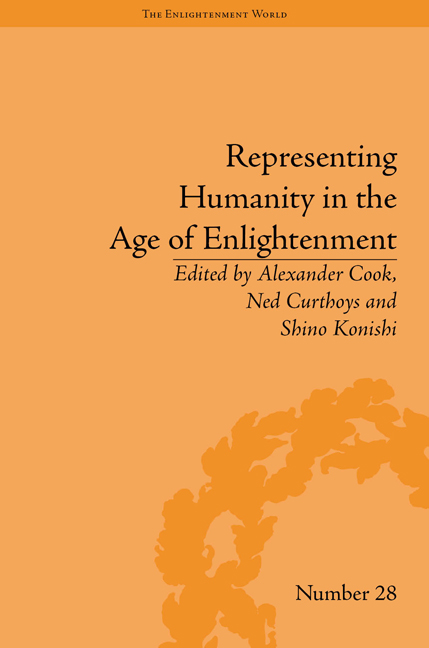Book contents
- Frontmatter
- CONTENTS
- Acknowledgements
- Dedication
- List of Contributors
- List of Figures
- The Science and Politics of Humanity in the Eighteenth Century: An Introduction
- Part I Humanity and the Civilizing Process
- 1 Representing Humanity during the French Revolution: Volney's ‘General Assembly of Peoples’
- 2 Representing Woman: Historicizing Women in the Age of Enlightenment
- 3 Sheer Folly and Derangement: How the Crusades Disoriented Enlightenment Historiography
- 4 Turning Things Around Together: Enlightenment and Conversation
- 5 Moses Mendelssohn and the Character of Virtue
- Part II Encountering Humanity
- Part III The Limits of Humanity
- Notes
- Index
4 - Turning Things Around Together: Enlightenment and Conversation
from Part I - Humanity and the Civilizing Process
- Frontmatter
- CONTENTS
- Acknowledgements
- Dedication
- List of Contributors
- List of Figures
- The Science and Politics of Humanity in the Eighteenth Century: An Introduction
- Part I Humanity and the Civilizing Process
- 1 Representing Humanity during the French Revolution: Volney's ‘General Assembly of Peoples’
- 2 Representing Woman: Historicizing Women in the Age of Enlightenment
- 3 Sheer Folly and Derangement: How the Crusades Disoriented Enlightenment Historiography
- 4 Turning Things Around Together: Enlightenment and Conversation
- 5 Moses Mendelssohn and the Character of Virtue
- Part II Encountering Humanity
- Part III The Limits of Humanity
- Notes
- Index
Summary
Conversation was not something that just happened in the Enlightenment. Certainly, in eighteenth-century Britain at least, conversation was promoted, written about, discussed and practised. Buildings were designed to facilitate it, parks and gardens laid out so as to promote it. Conversation was central to the transition from a culture of tradition based on identities assumed to be granted by God or the monarch to one where value was taken to be constructed by exchanges between participants. In this regard, conversation was central to the Enlightenment's project of improvement, as a practice and as a model for culture and society. Primitive man was widely regarded as unsociable and uncommunicative in Enlightenment stadial theory. Sophisticated commercial societies were built upon the interactions and polishing brought by conversation and the promoters of conversation by virtue of bringing people together in the name of trade. Often used synonymously with ‘commerce’, the utopian promise of a ‘conversable world’ offered a way to imagine commercial society as sustaining or recreating the community out of what might otherwise seem a fall into atomism and moral indifference. This essay is part of a larger project concerned with the strains placed on this promise by inequalities of access and anxieties about participation: the fear that cosmopolitan values could not be sustained in a world of democratic participation. It brings forward the particular case of Mary Hays and her novel Memoirs of Emma Courtney as an index of these pressures.
- Type
- Chapter
- Information
- Representing Humanity in the Age of Enlightenment , pp. 53 - 64Publisher: Pickering & ChattoFirst published in: 2014

